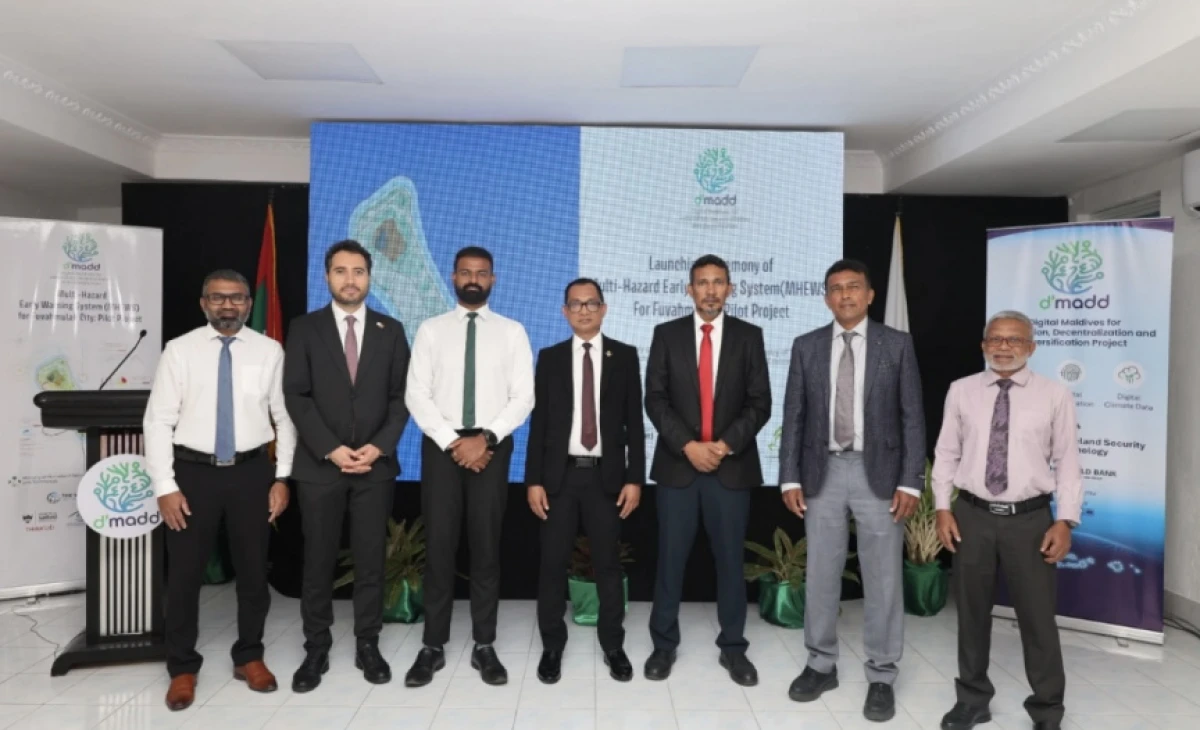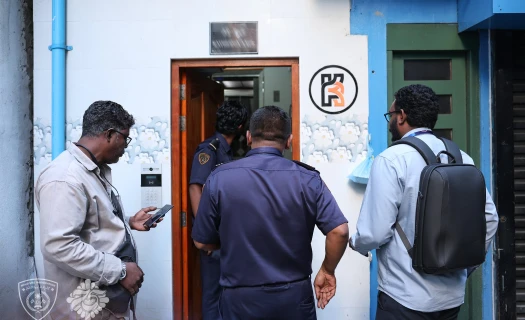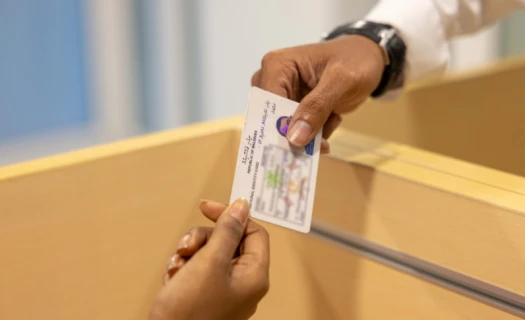Wed, 17 Dec 2025
|DHIVEHI
Fuvahmulah City to pilot multi-hazard early warning system
22 Aug 2025
|

Inauguration of the multi-hazard early warning system pilot project held in Fuvahmulah City --- Photo: Ministry of Homeland Security & Technology
Fuvahmulah City has begun the construction of a multi-hazard early warning system aimed at strengthening disaster preparedness in the face of climate change.
Launched as part of the Digital Maldives for Adaptation, Decentralisation and Diversification (DMADD) initiative, the project is supported through World Bank funding and aims to advance the Maldives’ digital transformation. It will be administered by the Ministry of Homeland Security and Technology and implemented by the National Centre for Information Technology (NCIT).
The inauguration ceremony in Fuvahmulah City was attended by the Minister of State for Homeland Security and Technology, Dr Mohamed Kinaanath, along with Fuvahmulah City Mayor Ismail Rafeeq and Erdem Atas, Country Economist and Resident Coordinator for the Maldives. State Minister Dr Kinaanath underscored the significance of the project in advancing President Dr Mohamed Muizzu’s digital transformation agenda under Maldives 2.0, noting that the system would support the President’s commitment to tackling the impacts of climate change through the use of new technologies.
State Minister Dr Kinaanath emphasised that the effectiveness of the system would depend on strong institutional collaboration, enhanced staff training, and active community involvement. He noted that it should not be regarded merely as a technical mechanism but as an essential means of reducing disaster risks in a fragile environment and protecting local communities.
Building on this point, the Minister of State explained that the facility in Fuvahmulah is being established as a pilot but has been designed with the potential to expand into a more extensive national framework. He described it as a plan rooted in decentralisation, supported by digital tools and shaped through the participation of stakeholders at multiple levels.
He also drew attention to the vulnerability of small island nations such as the Maldives to natural disasters caused by climate change. He pointed to rising sea levels, coastal erosion and higher tides as growing risks, and explained that the pilot project in Fuvahmulah City is being implemented in collaboration with the University of Salford in England.
Central to the project is the Mobilize software platform, developed by ThinkClub at the University of Salford. The system incorporates the unique geographic features of Fuvahmulah and draws on data from satellites, the Maldives Meteorological Service (Met Office) and IoT devices to estimate potential damage from adverse weather conditions.
This technology will enable city authorities to coordinate closely with the city council and the Met Office to deliver timely warning messages to residents and take precautionary action.
In its initial phase, the pilot will concentrate on assessing disaster risks and developing protocols to identify vulnerable groups at island level. Once this stage is completed, a living lab will be established at Fuvahmulah City Council to further enhance preparedness. The University of Salford has also committed to supporting the system for three years beyond the conclusion of the pilot, ensuring continuity in its development. During the inauguration, a presentation was delivered to outline the system’s current capabilities.


Popular News







